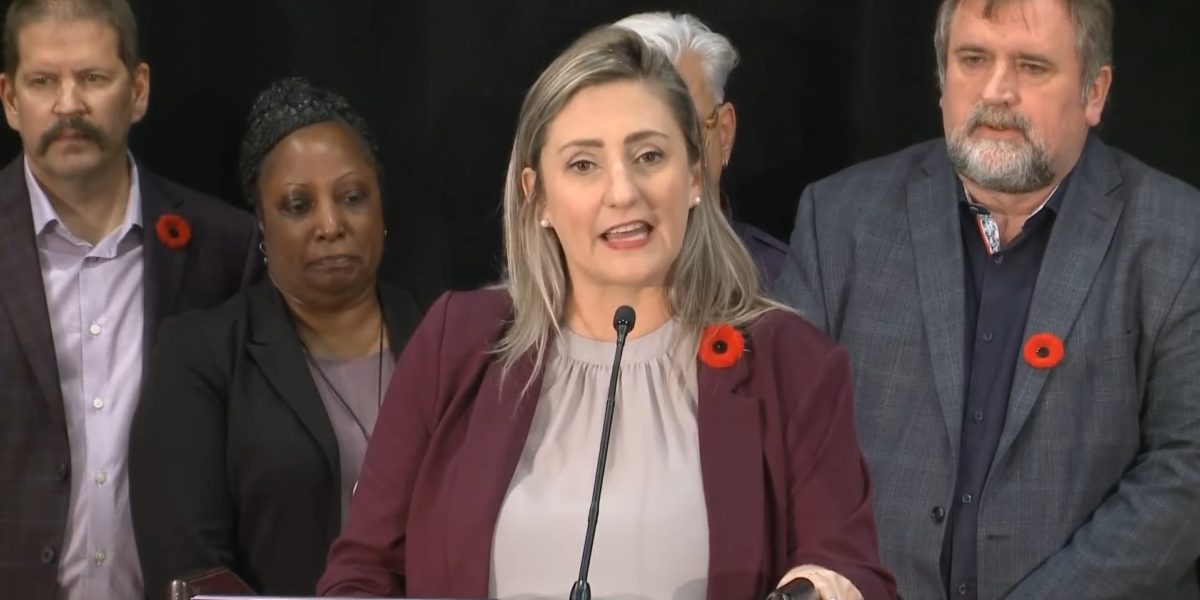Facing the prospect of a general strike across the province, Ontario Premier Doug Ford announced on Monday morning that he would repeal his controversial Bill 28.
Passed on Thursday, Nov. 3, Bill 28 imposed a new three-year contract on CUPE Ontario’s 55,000 education support workers. The bill restricted the workers to an annual pay increase of just 2.5 per cent, well below what the union was asking for. Ford invoked the notwithstanding clause to pass the bill, meaning it could not be challenged in court. It also made any strike action by CUPE illegal.
CUPE, however, pushed forward with their strike action on Monday. Multiple other unions also showed their solidarity and support for CUPE. Ontario Public Service Employees Union (OPSEU) President JP Hornick calling Bill 28 an “attack on all workers’ rights.”
With a general strike becoming a very real possibility, Ford announced that he would withdraw the offending legislation as a “sign of good faith.”
“I’ve always respected the right of workers to free and fair bargaining, but CUPE refused to take strike action off the table. They left us with no choice,” said Ford.
Solidarity wins out
Nearly two hours after the Premier bowed to union pressure, CUPE Ontario held a press conference. The conference was joined by dozens of leaders from public and private sector unions from across the country.
Unions represented at that conference included OPSEU, the Canadian Labour Congress (CLC), the Ontario English Catholic Teachers Association (OECTA), the English Teachers Federation of Ontario (ETFO), Unifor, United Steelworkers, the Public Sector Alliance of Canada (PSAC), the Canadian Union of Postal Workers (CUPW) and more.
“This is an unprecedented gathering of labour leaders,” said CUPE national president Mike Hancock. “Bill 28 was a direct threat to workers rights and the Charter rights of all Canadians. That regressive attack on workers united the labour movement like never before.”
Hancock told reporters that he had received a notice from the Premier in writing that Bill 28 would be repealed in its entirety at the earliest possible opportunity.
In return, CUPE’s 55,000 striking education support workers will be back on the job by Tuesday, Nov. 7. Negotiations with the government will resume.
“We have shown the power of public sector and private sector solidarity,” Hancock said.
Unions stood up to a bully; demand fair wages
Laura Walton, president of the Ontario School Board Council of Unions, praised her members for standing up to Ford at a Monday afternoon press conference.
“This started because Ford didn’t want to pay workers, the lowest paid education workers in the province, a living wage,” Walton said. She said that Bill 28 was an attempt to legislate her members into poverty. “You showed Ontario that you can stand up to a bully, look him in the eye and tell him ‘hell no, not today.’”
Walton countered misinformation she claims has been spread by the province and right-wing media that her union was asking for a near 50 per cent increase in annual compensation.
“What we have been asking for is a flat-rate increase,” Walton said. She says her union has never asked for an increase based on any percentage. “Percentage increases disparity between high wage workers and low wage workers.”
On CUPE’s website, they state that their position was to ask for a pay increase of $3.25 a year on a three year contract for all of their workers. Meanwhile, Ford’s offer would have equaled just $0.33 to $0.53 a year.
“I think there was a lot of creative math. Which is kind of scary when you think that this is the government that wants to change the math curriculum,” said Walton.
Walton also countered Premier Ford’s assertion that they left the negotiating table. She stated they had never withdrawn from negotiations despite their threat to strike.
This is a developing story. Follow our coverage on rabble.ca/labour. Also, join the conversation on babble.



